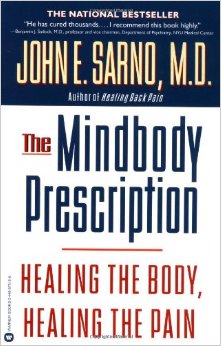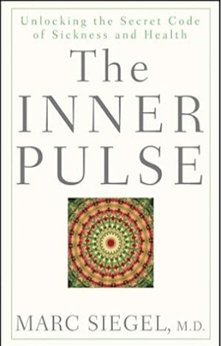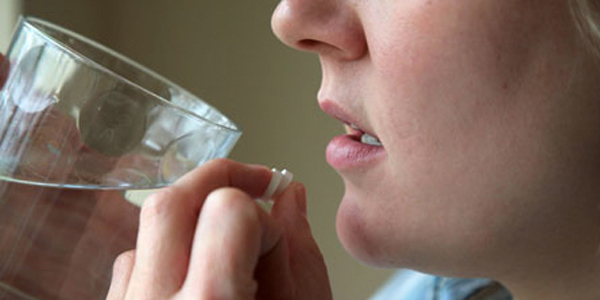
Most of us have heard about the placebo effect, but how does
it work? Is it really possible that the effectiveness of medications
might depend on what we believe about them? If so, how many of us have
felt better because of a placebo effect at some point, without realizing
it? And if a cure for whatever ails us is in the mind, then why don't
we make better use of this phenomenon?
_________________________
Magazine articles and news programs report on the placebo effect, hinting at the possibility that the brain may exert more control over health and disease in the rest of the body than we ever imagined. Numerous case studies, clinical research and incidental medical findings illustrate how the mind and body are so interconnected that healing often happens when we merely believe that an effective treatment has been administered, even when that treatment is a sham. Sugar pills, as it turns out, can - and often do - possess all the power of real medications. Digging deeper, we find that many prescription drugs fail to show a therapeutic benefit when tested against these so-called "dummy pills," if they are tested against them at all.
Big Business Versus Science
The pharmaceutical industry spends approximately $27 billion on drug promotion annually: $24 billion on marketing to physicians and $3 billion on advertising directly to consumers, mainly through television commercials. Drugs are big business, and the placebo effect has long been pharma's dirty little secret, when not a headline-news embarrassment to the practice of pharmacology. Many promising medications flunk against placebo while still in development, and even older, widely-prescribed medications often fail to work better than a placebo in follow-up studies. Due to the extent of the placebo effect in drug research, pharmaceutical companies now prefer either identifying test subjects who may have an especially strong response to placebos and excluding these so-called "high responders" from clinical trials, or using testing criteria that does not involve a placebo control group at all.
The FDA allows pharma's cherry-picking of study participants, poor study methodologies, and even the selective reporting of findings; these unscientific practices are not considerations in the agency's decision as to whether or not a drug should be allowed on the market. The fact that it's not uncommon for former pharmaceutical industry employees to join the FDA and then later return to their private sector jobs when they leave government positions might also call the agency's approval decisions into question. The bottom line is that, these days, fewer and fewer drugs are ever tested against placebos before becoming available to the public, and trials that do involve placebo controls are often manipulated to achieve a particular result. More and more focus is being placed upon shortcuts to push medicines through the FDA's approval process and into the marketplace - medicines that may carry unrevealed risks while not actually providing a benefit to most patients.
At the same time, thousands of readily available research papers published in respected medical journals and science periodicals point to the fundamental role that the mind plays in healing the body. The placebo effect is a common and well-documented phenomenon, albeit not often well-publicized. From pain pills to Parkinson's disease medications, from antidepressants to asthma inhalers, from common cold remedies to chemotherapy, there is a large (and growing) body of evidence that our psychological conditioning impacts our physiological responses to the treatments we are prescribed. And so, however pharma conducts its research, its lobbying, and its promotional campaigns - and whichever way the revolving door between the FDA and pharmaceutical companies swings - there is no getting around an increased awareness of the placebo effect and its implications for our present health care system.
The Evidence
According to several decades' worth of medical research on the subject, as well as concomitant findings in studies of diseases and drugs themselves, the placebo effect can produce curative results for dozens of disorders - often on a par with commonly-prescribed and supposedly efficacious medications. Known placebo-responsive conditions presently include ADHD, allergies, angina, anxiety disorders, asthma, autism, back pain, bipolar, bronchitis, colitis/ulcerative colitis, common cold, cough, Crohn's disease, chronic fatigue syndrome, depression, dermatitis, epilepsy, food intolerance, gastric and duodenal ulcers, headache, heartburn, heart failure, herpes, high blood pressure, influenza, insomnia, interstitial cystitis/bladder pain syndrome, irritable bowel syndrome, lupus, migraine, multiple sclerosis, myeloma, nausea, nearsightedness, osteoarthritis, panic disorders, Parkinson's disease, PTSD, prostatic enlargement, reflux esophagitis, rheumatic diseases, rheumatoid arthritis, and sinusitis.
More conditions are being added to that list all the time, as new information about recently developed and even well-established, widely-used medications becomes available. By the same token, traditional and natural remedies are not necessarily a better choice for preventing illness, alleviating symptoms of illness, or curing illness, despite the prevalence of such products on store shelves. For well over a decade, the National Center for Complementary and Alternative Medicine (NCCAM) has spent billions of dollars testing alternative therapies, and their findings thus far are that many popular non-pharmaceutical treatments - echinacea for colds, glucosamine and chondroitin for arthritis, ginkgo biloba for memory, black cohosh for hot flashes, saw palmetto for prostate problems, and shark cartilage for cancer, to name a few - work no better than placebo.
Interestingly, the placebo effect has also been found to extend beyond prescription drugs and alternative therapies, and into the operating room. In 2013, a team of researchers at the Institute of Medical Psychology in Munich studied the prevalence of placebo effects across medicine and found that placebo effects were much higher for devices and surgical interventions than for drugs. Enter placebo surgery, a study control where one group of patients are given anesthesia, incisions are made, but no actual surgery is performed. Whether or not an actual surgical procedure was done is typically not revealed to the test subjects until weeks, months or even years later. Some researchers have used another control group: those who receive no surgical intervention at all. At this writing, placebo and no-surgical-intervention studies have been conducted regarding surgeries of the heart, back, knee, appendix, and prostate, as well as for conditions such as high blood pressure, Parkinson's disease, multiple sclerosis, and Meniere's disease. The results? None of the real surgeries tested against placebo surgeries or no surgery at all has shown a significant benefit to patients. Not one.
For almost all other surgeries that have not yet been tested against placebo or no surgery at all, conventional medicine can offer no measure of therapeutic value resulting from such interventions. Even in the case of trauma, a 2006 assessment of patient outcomes found that many people admitted to emergency rooms with spleen and liver injuries fared just as well and often healed more quickly without what was once considered "life-saving" surgery. As strange as it may seem to those of us who have thought of surgery as a sometimes necessary "last resort," all of the data so far show that a fake procedure is just as good (and sometimes better) than the real thing - and that no surgical procedure at all, in many cases, may be better still.
The Healer Within
What's behind this magic of the mind facilitating healing in the body, even in the absence of a "proven" medical treatment? The healer within each of us. The placebo effect is a psychosomatic phenomenon, in that our minds set healing into motion irrespective of whether a treatment we have received has any pharmacological or surgical effect. A patient's belief in the value of a therapy - along with the expectation that a therapy will result in feeling better and getting well - is an important part of the placebo paradox. In many cases, it matters not that the therapy is really no therapy at all, so long as our positive expectations of it are in place. As a UK Medical Research Council report on the effect of treatment expectations on patient outcomes concluded, "an individual's expectation of a drug's effect critically influences its therapeutic efficacy."
Another factor in the placebo effect is the doctor-patient relationship. Several studies have shown that a physician's words and behaviors impact patients not only psychologically, but physically. "This treatment works," accompanied by the signification with which an appointment with a doctor is imbued, is a potent pronouncement. Doctor-patient interplay - a complex ritual involving a specific environment, along with words, gestures, actions and objects associated with healing - is powerful medicine in and of itself. This "problem-solution" model is imprinted upon the psyches of most of us living in the industrialized world at an early age, to the extent that we subconsciously associate healing in our own bodies with another person - one wearing a white coat and donning a stethoscope. A study funded by the NIH, led by a Harvard researcher Ted Kaptchuk, found that patients who felt they had received the "most care" by a doctor experienced the most symptom improvement, even when the treatment administered had no therapeutic value.
The subconscious plays a critical role in the placebo effect: via experiential conditioning, it is the generator of our beliefs and the engineer of our expectations. By that, and its command over the autonomic nervous system and immune function, there seems to be no overestimating the influence of the subconscious in the activation of the placebo response. Neuroimaging studies of the human brain show that our expectations are triggered independently of the deliberation associated with "thinking things through"; that certain structures associated with the subconscious, such as the striatum (keeper of procedural memory) and the amygdala (the integrative center of emotional responses) can and do process incoming stimuli quickly, powerfully, and before that stimuli reach conscious awareness. The medical establishment's appreciation of this brain behavior - and further investigations into recently discovered means of mediating it - are essential to a broader application of the mind-body connection in health care.
More than "magic," the placebo effect manifests in our bodies from within our minds: from a deeply held belief in the idea that a treatment will help us, the subconscious expectation of feeling better because of that treatment, and our culturally-programmed perception of the doctor as an authority or expert administering care to us. This complex combination of psychological factors results in measurable physiological changes that can be seen not only via brain imaging, but in lab tests results which demonstrate that our beliefs, expectations and perceptions alone can produce profound changes in the body at cellular and molecular levels. It is, apparently, our deep-seated faith in modern medicine and those who practice it - a faith instilled in most of us as very young children - that does the trick.
Which way From Here?
Health care in the US is currently at a crossroads. Sloppy science, skyrocketing costs, a significant uptick in somatic chronic conditions, and what doctor and bestelling wellness author Andrew Weil calls "a nation of people who believe there's a pill for every health problem" have transformed America's once-hailed health care system into a disease management system, with disastrous results. According to an article published in the Journal of the American Medical Association, conventional medical care itself is now the third leading cause of death in the US, with most of those deaths being drug- and surgery-related. And a recent study by the National Research Council and the Institute of Medicine made clear its conclusion about our nation's present health care crisis on the title page: Shorter Lives, Poorer Health.
That the placebo effect can result not only in pain and symptom relief, but in the amelioration of disease is a fact too often swept aside in our reflexive drug- and surgery-centered approach to patient care. The evidence is in. And for the most part, it is being ignored, when not viewed as a stumbling block to bigger profits by pharmaceutical companies and medical coporations that rely on our broken health care system remaining propped up, as-is, by patients desperate to feel better at any cost.
Still, there are bright spots on the horizon, as an increasing number of independent and academically-funded researchers are not only exploring how the placebo effect works, but investigating ways in which it might be put to practical use. And while big pharma scrambles to avoid addressing the placebo effect, many physicians understand its usefulness in clinical practice: According to a 2008 Mayo Clinic report, 45% of doctors surveyed admitted that they prescribe placebos to their patients. When the question was rephrased to determine whether they had prescribed medicines that they knew were of no benefit to a patient's particular condition, the number jumped to 58%. Doctors who prescribe placebos do so not to fool their patients, but because they know, as the "boots on the ground" in health care, that placebos can work as well as real medicine.
The way ahead will depend on the medical establishment's increasing recognition of the importance of the mind-body connection underlying the placebo effect, a willingness on the part of mainstream medicine to accept new scientific evidence over dispensable dogma, and on doctors and patients alike choosing treatment courses based upon that evidence instead of prescription drug marketing and questionable surgical protocols. Will the system in place continue to ignore the power of the placebo effect by advocating drugs and procedures of unproven and disproven value - and, too often, high risks - to patients? Will patients themselves, as they become more enlightened about this subject, be willing to come to terms with the role that their own beliefs and expectations play in the effectiveness of the treatments they receive?
Are we ready and able as a culture to navigate the next steps necessary by accepting the challenges and responsibilities that come with a new mind-body paradigm in medicine?



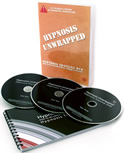
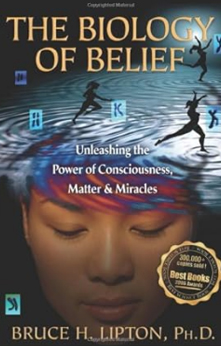 The
Biology of Belief: Unleashing the Power of Consciousness, Matter and &
Miracles
The
Biology of Belief: Unleashing the Power of Consciousness, Matter and &
Miracles